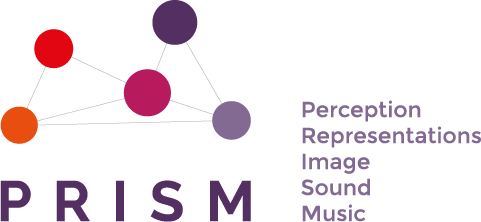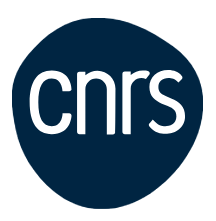The proceedings are accessible here:
https://cloud.prism.cnrs.fr/index.php/s/CXYJzERte7x273Q
Each year, the "Journées d'Informatique Musicale" bring together researchers, developers and different players in musical life using computing as a tool for dissemination, creation, interpretation or pedagogy. The JIMs are managed by the Association Francophone d'Informatique Musicale (AFIM) and are supported by DGCA and the French Ministry of Culture and Communication. The JIM 2024 are co-organized by PRISM (CNRS/AMU/Ministry of Culture and Communication), AFIM, Inciam and gmem, and will take place from May 6 to 8, 2024, at la friche (gmem, 6 and 8th May) and at the CNRS Aiguier campus (PRISM, Tuesday 7th May).
Calendar:
Article submission deadline: Monday February 12, 2024 -> Monday February 19, 2024
Notification of acceptance: Monday March 18, 2023
Deadline for submission of final versions: Monday April 15, 2024
Topics:
This edition, from May 6 to 8, 2024, will focus on the following themes, in addition to the themes usually covered:
Risset & Beyond
What is Jean-Claude Risset's legacy in the fields of sound synthesis, live electronics and the use of the disklavier for musical creation in the age of AI, streaming listening practices and non-standardised electronic lutheries? "Is 'creating sound itself' still relevant in the first quarter of the 21st century? How modern is Jean-Claude Risset in an environment of constant technological innovation?
Computational musicology
Computational musicology fuses music theory, computer science and data analysis to interpret musical structures using algorithms and statistics. Dating back to experiments that began over 70 years ago, it has subsequently led researchers to closely examine the suitability of musical theories for computer use. This rapidly evolving field, at the crossroads of tradition and innovation, raises the question of the extent to which technology can continue to improve our understanding of music without compromising the very essence of musicological work.
Intersection between computer science and empirical musicology
Empirical musicology draws on methodologies from a variety of disciplines, including psychology, statistics, acoustics and computer science. The application of empirical methods enables a more quantifiable and reproducible understanding of music, bridging the gap between the subjective nature of musical experience and the objective analysis of musical phenomena. What references, new methods and protocols resulting from these cross-fertilisations are ready to be integrated to enrich our analysis of musical works?
Immersion, Multimodality, Virtual Reality
Virtual reality typically revolves around images. However, its use in the field of sound opens up promising prospects, both in industry and in artistic creation, as illustrated by the advances in binaural techniques, which now play an essential part in the user's sense of immersion. Interaction design in VR today typically entangles sound, visual and haptic feedback, and thus opens up a more forward-looking dimension to multimodal creation and the new challenges linked to multisensory interactions.
Registration:
To attend the Musical Computer Days, it is mandatory to register.









